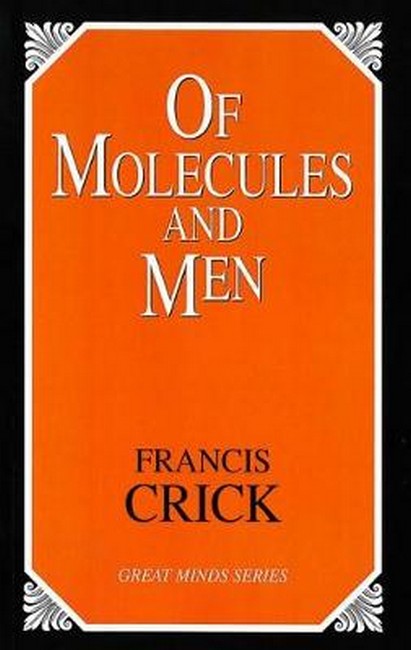FRANCIS HARRY COMPTON CRICK was born on June 8, 1916, at Northampton, England. The elder son of Harry and Annie Eliz-abeth Wilkins Crick, he was educated at Northampton Grammar School and Mill Hill School, London. He studied physics at Univer-sity College, London, earning his bachelor's degree in 1937. His pur-suit of a doctorate was interrupted by the outbreak of World War II. Crick worked as a physicist for the British Admiralty during the war, leaving in 1947 to study biology. He earned his doctorate at Caius College, Cambridge University, in 1953. Crick was a laboratory scientist at Cavendish Laboratory, Cam-bridge University. In 1962 he became director of Cambridge Univer-sity's Molecular Biology Laboratory. From 1977 he was a faculty member at the Salk Institute for Biological Studies in San Diego, and is now a distinguished professor and president emeritus of the insti-tute's Kieckhefer Center for Theoretical Biology. He was a visiting lecturer at the Rockefeller Institute, New York City, and a visiting pro-fessor at Harvard University. In 1959 he was elected a Fellow of the Royal Society. In 1962 Crick won the Nobel Prize in physiology/medicine, with James D. Watson and Maurice H.F. Wilkins, for studies of the mole-cular structure of DNA. Queen Elizabeth II awarded him the Order of Merit in 1992. Crick is the author of numerous papers and articles on molecular biology, and four books: Of Molecules and Men (1966), Life Itself: Its Origin and Nature (1981), What Mad Pursuit: A Personal View of Sci-entific Discovery (1988), and The Astonishing Hypothesis: The Scientific Search for the Soul (1994).

